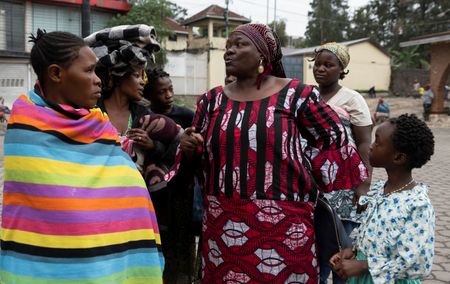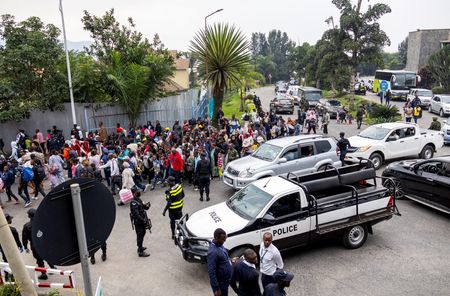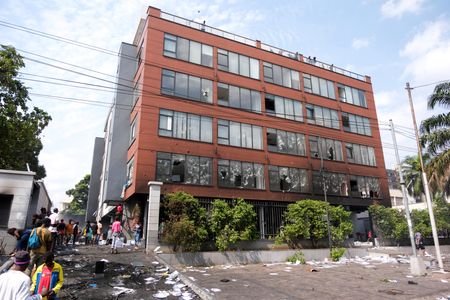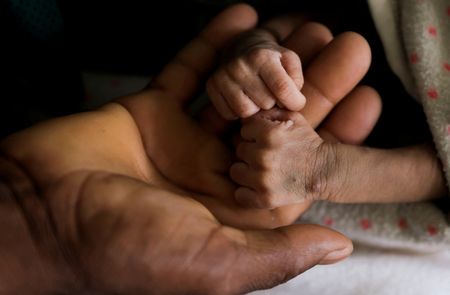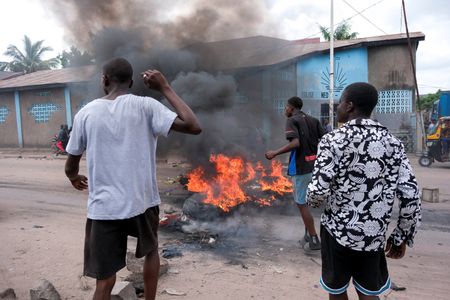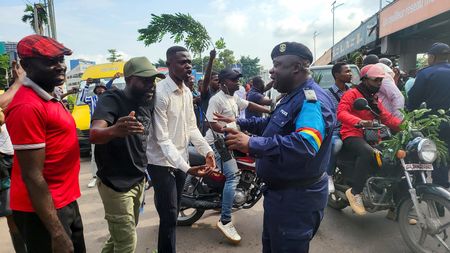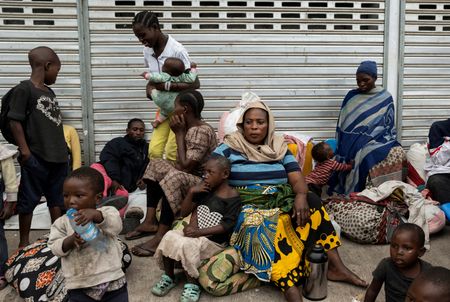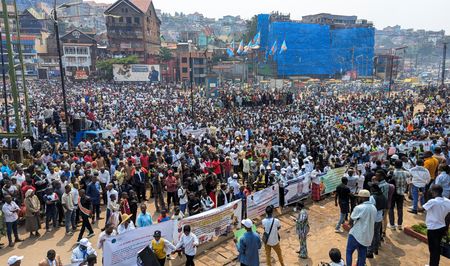GOMA (Reuters) – Residents of eastern Congo’s largest city of Goma greeted the arrival of Rwanda-backed rebels with trepidation on Monday, some staying indoors and others coming out to cheer in what one called a “show” of happiness.
The M23 fighters swept into Goma, a lakeside city of about 2 million people, on Sunday for the second time in 13 years. They met little resistance from Democratic Republic of Congo’s army, although gunfire could be heard in parts of town on Monday.
In some areas of Goma, a hub for humanitarian operations across the region, residents lined the streets to applaud and fist-bump heavily-armed fighters in green fatigues and matching rubber boots, videos posted on social media showed.
“Welcome, welcome our friends,” some people chanted in one video.
Four residents interviewed by Reuters, who asked not to be named for fear of reprisals, said the apparently warm welcome was born of self-preservation.
“We try to be kind because there is fear. Since they are criminals, we can’t predict their behaviour,” said one resident reached by telephone. “The only thing we can do is show that we are happy.”
Another resident said: “We stay at home, waiting to know the real situation because there is a lot of confusion for the moment.”
UPROOTED
Hundreds of thousands have taken shelter in Goma in recent months after fleeing fighting between the M23 and Congolese army. Rights groups have accused the rebels, as well as Congolese soldiers and allied militiamen, of carrying out rapes and other abuses. All sides have denied responsibility.
One resident said the M23’s arrival was something of a relief after a months-long siege and fears of a bloody battle for the city.
“People want services, security and business. So if they provide those, then people could comply,” he said, while adding others would always oppose M23 because of their Rwandan backing.
Goma residents have frequently demonstrated against Rwanda and the M23, the latest in a long line of Tutsi-led rebel movements active in mineral-rich eastern Congo.
The group also captured Goma in 2012 but withdrew days later after an agreement brokered by neighbouring nations.
That time, they were also welcomed by small crowds in public, though many more remained indoors. Human Rights Watch later said it had documented 24 cases of summary executions, the rape of 36 women and girls and forcible recruitment by M23 fighters in Goma and surrounding areas. M23 denied the charges.
Rwanda has previously denied ties with the rebellion but also said it has the right to defend itself. It accuses Kinshasa of scapegoating Tutsis in Congo while supporting ethnic Hutu militiamen, some of whom have links to the 1994 Rwanda genocide when Hutu extremists murdered hundreds of thousands of Tutsis.
Congo’s government has denied these allegations.
(Reporting by Congo newsroom; Writing by Hereward Holland and David Lewis; Editing by Aaron Ross)

